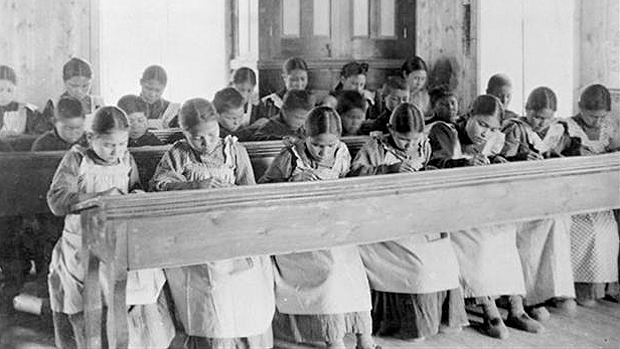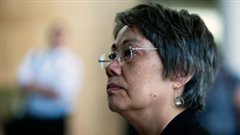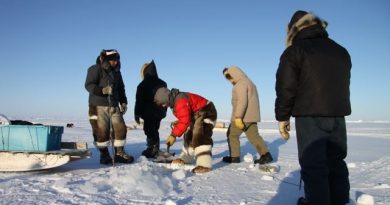Last day for residential school abuse claims to be filed in Canada
 Former students have until 11:59 p.m. Pacific Time to submit applications
Former students have until 11:59 p.m. Pacific Time to submit applications
Aboriginal Canadians who suffered physical or sexual abuse in residential schools have until the end of today to apply for federal compensation.
Applications for claims under the Independent Assessment Process must be sent electronically or postmarked no later than 11:59 p.m. local time on Wednesday.
Compensation under the Independent Assessment Process is different from the Common Experience Payments that many former students received in recent years.
The Common Experience Payment gave eligible former students $10,000 for the first year they had to attend residential schools and $3,000 for each successive year.
The deadline for those payments passed in 2011, although Wednesday is the final deadline for applications that are being filed late due to a claimant’s disability, undue hardship or exceptional circumstances.
The Independent Assessment Process provides additional compensation to former students who suffered serious sexual, physical or other abuse that caused psychological damage.
Both payments are being provided under the Indian Residential Schools Settlement Agreement (IRSSA), a class-action settlement that was reached between the federal government, aboriginal groups and former students.
Number of claims rise
The Indian Residential Schools Adjudication Secretariat says it has processed more than 30,000 abuse claims to date, with at least 16,000 applications to go.
Officials say the number of claims under the Independent Assessment Process has increased exponentially in the past three months.
The average compensation amount is $98,000, and payments depend on how drastically the claimant’s life has been affected by the abuse he or she suffered at the schools.
“The effects of the harm will always be there, I would suggest, for all of the people,” said Dan Ish, the chief adjudicator of the claims assessment process.
“Some former students are able to come to terms with it better than others, and some will have a difficult time throughout their entire life.”
After the deadline passes on Wednesday night, the only way anyone can file a new claim is through court action.
Forced assimilation policy
Residential schools operated in Canada during much of the 19th and 20th centuries, as part of a federal government policy aimed at forcing the assimilation of young aboriginal people into European-Canadian society.
In all, about 150,000 aboriginal, Inuit and Métis children were removed from their families and communities and forced to attend the church-run, government-funded schools.
Many students were barred from speaking their native languages or engaging in their culture at the schools. Some also reported experiencing physical and sexual abuse.
But while thousands of compensation applications are being processed, some students say they cannot seek compensation because the residential schools they attended are not on the list of eligible schools.
About 1,300 residential schools have been left off the list, including a school that Wilton Littlechild, a member of the Truth and Reconciliation Commission, attended as a child.
“It’s not a distant issue for me. I lived it myself, and I’m currently living it,” Littlechild told CBC News.
“My second school, my sister’s second school, my brother’s second school — all of us have not been recognized.”
Former students of aboriginal day schools have launched class-action lawsuits seeking compensation for their experiences.
Littlechild, along with Marie Wilson and chief commissioner Murray Sinclair, are gathering anecdotes from former students across Canada about their residential school experiences.
The federally appointed commission is also promoting public education and awareness about Canada’s residential school system.
Related Link:
Special Report: Truth and Reconciliation, CBC News
FAQ: A history of residential schools in Canada, CBC News
For more northern stories from CBC News, click here



